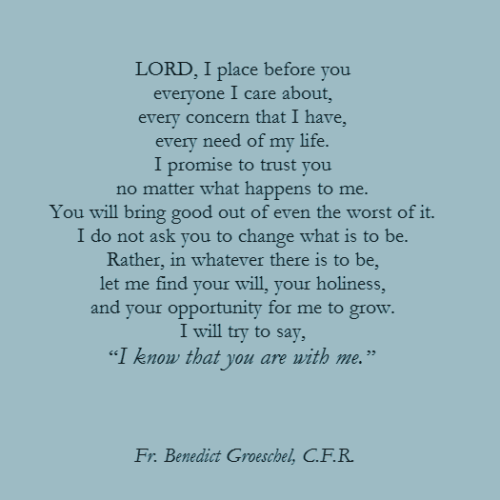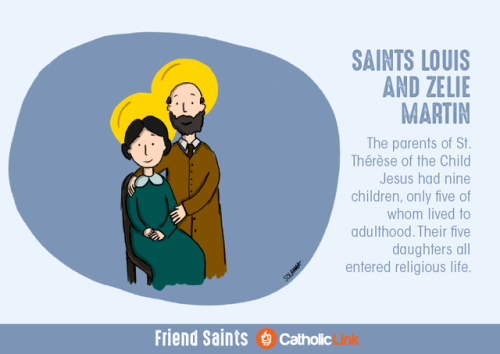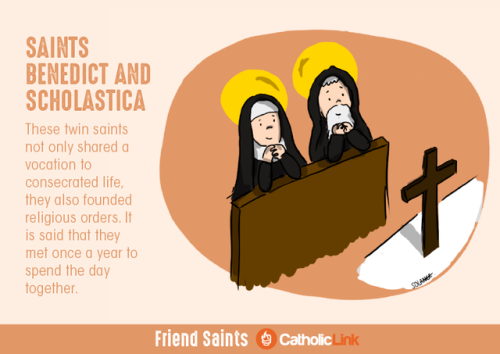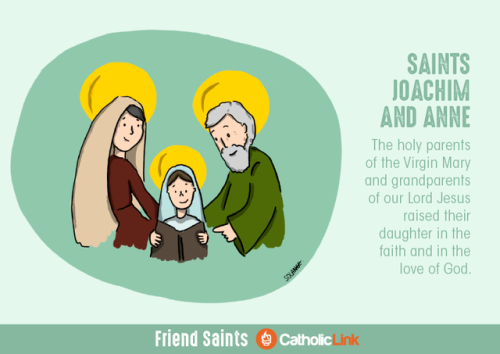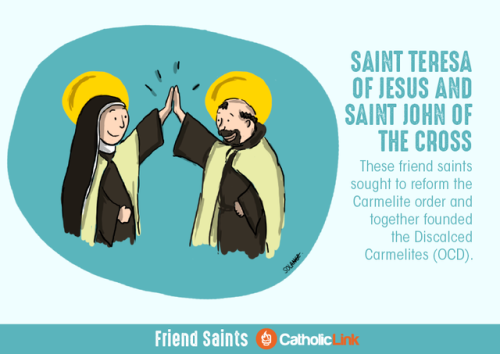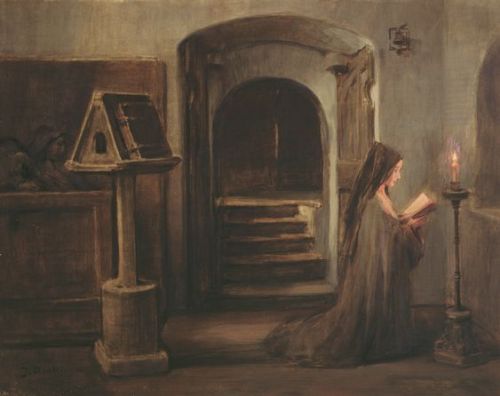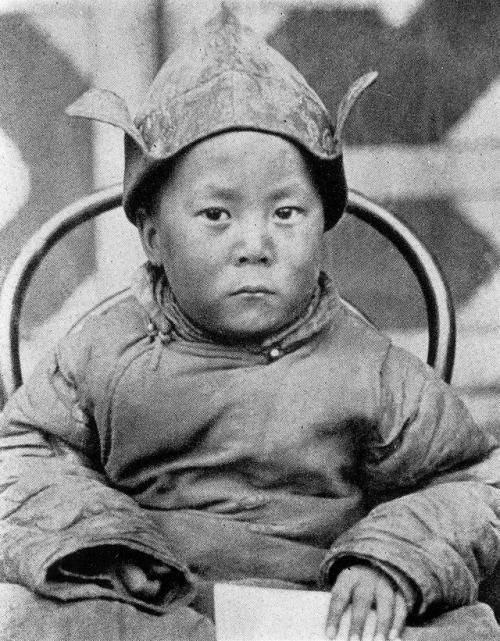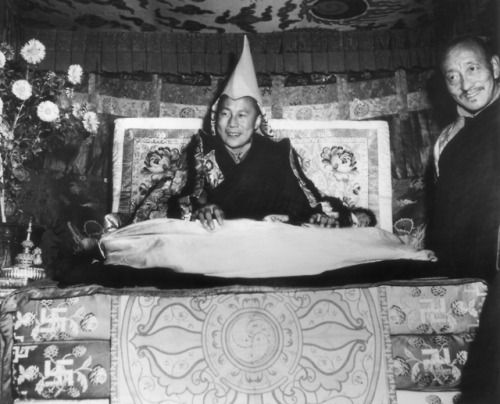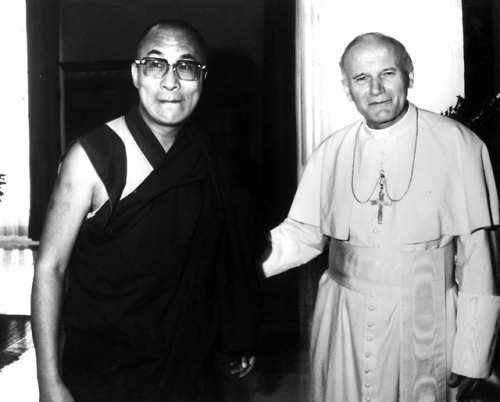#holiness
So you find out someone was saying terrible things about you, and then they turn around and ask for your help. And you think, well they don’t DESERVE my help! Ha!
And then you talk to your godly husband who reminds you that being like Jesus isn’t easy, it’s a daily choice, to do the right thing, to not repay evil with evil, to not get tired of doing good, to strive for Holiness everyday, in every way…
So you relent. Against your fallen nature. Through gritted teeth.
Then Jesus softly reminds you - hey, YOU didn’t deserve ANYTHING I’ve given you freely, salvation, love, peace, joy… should I go on?
Then your heart changes, ever so slightly… and you thank God for His mercies and His love and His patience with you, and ask Him to keep working in your heart.
“Never be afraid of your Bibles. If there is a text of Scripture you dare not meet, humble yourself till you can. If your creed and Scripture do not agree, cut your creed to pieces, but make it agree with this book. If there be anything in the church to which you belong which is contrary to the inspired word, leave that church.”—
Charles Spurgeon
This, right here, is the powerful heart of Christian living, the true fire of Charity.
The Bible contains many “hard sayings,” many difficult commands, and plenty of convicting truths. Being the Holy Book, it will inevitably point out our unholiness with piercing accuracy. Don’t run away. Don’t let pride make you hide! That Biblical cutting-down-to-size is what cuts out our sinful habits, if we humbly accept that we both need and deserve the process.
Likewise, some of your personal beliefs, opinions, preferences, ideas, etc., being formed by the world, will stand opposed or contrary– however minimally– to what it says in God’s Word. You may laugh this off as mistranslation or “outdated doctrine” or the like, trying to justify yourself and validate all your thoughts instead, forgetting that you are terribly fallible and prone to commit error every moment. When your viewpoint clashes with that of Scripture, you get off that high hill of yours and seek a different vantage point. When your own “book” of rules disagrees with the one Good Book, you tear your tome apart at the very spine. I use brutal language because we cannot be mincing or hesitant in these matters. There is One Truth that is God, and if we encounter opposition to it in ourselves, however “minor,” it is still a lie in the face of God and it must be removed and replaced.
Lastly, we live in the last days. The Church, though her heart is safeguarded as the Bride of Christ, nevertheless is maintained by thousands of human sons & daughters who maim their Lord’s teachings by their own errors, by gutless lies and social pride and moral laxity. Your local church is not exempt from this plague. You must keep your eyes & heart fixed on God’s Word, vigilant for any missteps or malice both within yourself and in your worship community, and like a devout soldier, always ready to defend your Lord’s honor and guard His Church from the enemy, the Liar. Be gentle but firm, courageous but meek, merciful but just– and start with yourself. Get the beam out of your own eye, by the grace of God! Only in true humble piety can you discern dangers in the church, which includes you. If you aren’t properly living as a sheep of His flock, you won’t recognize the impropriety of a wolf… and a true sheep knows their Master’s Voice: a Voice we learn to love through His Word.
Never be afraid of the Bible. Yes, it is full of fearful power, but that power is meant to save! Such is the nature of holiness. Its fire is meant to purify and enlighten! Every word within it has been given for Good. Trust in its heart, and read it constantly. Let it define your entire life, for when this life ends, only the soul who has loved God’s Word will know the Way to life eternal.
What has Adam’s guilt got to do with us? Why are we held responsible for his sin, when we were not even born when he committed it? Did not God say: “The parents will not die for the children, nor the children for the parents, but the soul which has sinned, it shall die.” How, then, shall we defend this doctrine [of original sin? Let us begin by affirming that] the soul [which] has sinned [shall] die. We [all] have become sinners because of Adam’s disobedience in the following manner: After he fell into sin and surrendered to corruption, impure lusts invaded the nature of his flesh, and at the same time [his nature was infected,] the ‘evil law’ of [all future mankind’s] members was born. For our nature contracted the disease of sin because of the disobedience of one man, that is, Adam, and thus many became sinners [by nature]. This was not because they sinned along with Adam, because they did not then exist, but because they had the same nature as Adam, which, [by failing to honor the law of God,] fell under the law of sin. Thus, just as human nature acquired the weakness of corruption 'in’ Adam because of [his] disobedience, [whereupon] evil desires invaded it, so the same nature was later set free by Christ, who was obedient to God the Father and did not commit sin– [restoring & preserving forever, through His sharing in human nature, the righteous purity that Adam lost].
Saint Cyril of Alexandria
How [do] we have access to grace through our Lord Jesus Christ? The Savior Himself tells us: “I am the Door,” and “No one comes to the Father except by Me.” …This Door is the truth, and liars cannot enter in by the door of truth. Again, this Door is righteousness, and the unrighteous cannot enter in by it. The Door Himself says: “Learn from Me, for I am gentle and lowly in heart.” So neither the irascible nor the proud can enter in by the door of humility and gentleness. Therefore, if anyone wants to have access to the grace of God– which, according to the word of the apostle, comes through our Lord Jesus Christ, and in which Paul and those like him claim to stand– it is essential that he be cleansed of all [vices, for all are opposed to Christ]. Otherwise, those who do what is contrary to Christ will not be allowed to go in by that Door, which will remain closed [against such corruption,] and [so justly] keep out those who are incompatible with Him.
Origen of Alexandria
To all my Apostolic brothers and sisters here, please get yourself a copy of this book. It will change your life! God has used the author to expound on so many principles that we’ve questioned for so long. Trust me, you won’t be disappointed.



I pray that God will cover and seal this boy for His kingdom
Who are you? Are you a Thief?
John 10:1, “Verily, verily, I say unto you, He that entereth not by the door into the sheepfold, but climbeth up some other way, the same is a thief and a robber.”
What was Jesus saying here when He made such a bold statement and what door was He talking about? By the way, where have I entered? Did I enter through this door that He’s refering to or am I classified as a thief and a robber?
Jesus was referring to entrance into the Church How did you become a part of the Church, were you baptized (submerged) in water, in the name of Jesus Christ so that your sins were washed away, or are you still in sin because you were baptized in titles and therefore, you are still living in sin? If the latter describes the course of action you have taken, sorry my friend, He’s talking about you.
John 10: 9, “ I am the door: by me if any man enter in, he shall be saved, and shall go in and out, and find pasture.”
You see, you HAVE TO enter the kingdom through Him. In Acts 2: 37-38, the question was asked and the answer given about how a person can be saved. “…Men and brethren, what shall we do? Then Peter said unto them, Repent, and be baptized every one of you in the name of Jesus Christ for the remission of sins, and ye shall receive the gift of the Holy Ghost.” Yes, in His name and not titles. After all, what use are titles when we are admonished by God’s word in this way, “And whatsoever ye do in word or deed, do all in the name of the Lord Jesus, giving thanks to God and the Father by him.”- Col. 3:17.
If you are walking in a crowd at the carnival or airport with your dad and all of a sudden, there’s a surge in the crowd, and you get separated from him, shouting for dad may not help because many dads are in the crowd and your dad may have turned back to look for you, when you went forward looking for him. When you get to a security post to seek assistance, when you tell them you can’t find your dad they’re going to need his full name and if you don’t know your dad’s name, they won’t be able to page him to come and get you. If they knew his name, they could simply page him to come get you at the security post; problem solved. It’s a somewhat similar situation. When you’re in trouble, are you going to shout “father, son and holy ghost help me” or are you going to call on the name of Jesus until your deliverance comes? Use the name, best results!
Furthermore, the Word also says, “Neither is there salvation in any other: for there is none other name under heaven given among men, whereby we must be saved.”_ Acts 4:12. Therefore, as Jesus Christ had said, you are a thief and a robber if you “entered” by some other means and we all know that thieves and robbers cannot enter Heaven, so it would now be wise to turn back and enter through “The Door”, Jesus Christ before the the door closes and time changes to eternity.
The Lord bless you continually my friends.
“During a service, the priest does not only cense the icons of the Savior, the Mother of God, and the saints. He also censes the icon-people, the image of God in the people who are present. And as they leave the Church precincts, these people remain as much the images of God, worthy of being censed and venerated. Our relations with people should be an authentic and profound veneration… The churching of life is the sense of the whole world as one church, adorned with icons that should be venerated, that should be honored and loved, because these icons are true images of God that have the holiness of the Living God upon them.”
~ Mother Maria of Paris
• On January 18, 2004, the Holy Synod of the Ecumenical Patriarchate in Istanbul recognized Mother Maria Skobtsova as a saint along with her son Yuri, the priest who worked closely with her, Fr. Dimitri Klépinin, and her close friend and collaborator Ilya Fondaminsky. All four died in German concentration camps. More: https://incommunion.org/2004/10/18/saint-of-the-open-door/
Post link
HOMILY for 1st Sat in Lent
Deut 26:16-19; Ps 118; Matt 5:43-48

On this day in 1622, 400 years ago, Pope Gregory XV canonised five Saints, the first time that a group of Saints had been canonised together, and what an illustrious group they were: St Isidore the Farmer, St Teresa of Avila, St Philip Neri, St Ignatius of Loyola, and St Francis Xavier! Each in their own distinctive way lived out the call of Christian perfection, the call to holiness, that we hear in today’s Gospel, and which the Lord addresses to us today. So, what can these great saints teach us, and how did God’s grace enable them to live out today’s Gospel?
In the first place, the Lord calls us to love others without special favour, and indeed, to love others universally as God loves us. So St Teresa, reflecting on this within her own context as a Carmelite nun, said that “In this house, all must be friends, all must be loved, all must be held dear, all must be helped.” And because love is never exhausted, and because we can never love enough, so Jesus calls us to perfection. St Philip Neri wisely observes that Christ calls us to the perfection of God, not so much because we can become as perfect as God, but so that we will not “rest contented with any degree of perfection” that we think we might have attained. Rather it is hoped that we should keep striving to be more loving, more merciful, more good as our Father in heaven is.
As such a certain zeal for charity, a tireless zeal for the salvation of souls sustains each of the Saints who are being remembered on this anniversary day. St Francis Xavier, the great Jesuit missionary to the Far East, for example, wrote that “I have not stopped since the day I arrived. I conscientiously made the rounds of the villages. I bathed in the sacred waters all the children who had not yet been baptized.” In this great work of bringing people to friendship with Christ, he must have been inspired by the example of his friend and fellow Jesuit, the founder of the Society of Jesus, St Ignatius Loyola who declared: “For those who love, nothing is too difficult, especially when it is done for the love of our Lord Jesus Christ.”
Indeed, love for Christ empowered each of these great Saints to carry out their work: reforming their religious communities, renewing the Church in their times, writing and reaching out to countless people, travelling to the ends of the earth. But the presence of St Isidore the Farmer among this group of Saints reminds us that one doesn’t have to do these great heroic acts or be a priest or religious in order to become a Saint. Rather, one simply has to love Christ in whatever work we do, in whatever vocation or state of life we might have. So, St Isidore, was a poor and humble farmer who laboured in the fields but he would always begin his day with Holy Mass, and what little he had, he would give away to help his neighbours and the hungry.
For Christianity is not a religion of abstract ideas, or distant ideals and impossible laws. Rather, our Christian faith is about love, and as the first reading today implies, love is revealed through our actions, through what we do. As St Ignatius Loyola said: “Love is shown more in deeds than in words.” However, we might ask, how do we acquire such love so that we will gladly obey the commandments of Christ, and live out fully our Baptismal calling? How can we Christians be inflamed by God’s love?
Only through daily prayer, through a frequent reception of the Sacraments, as St Isidore’s example shows us. For prayer, as St Teresa says, deepens our friendship with God. Prayer she says “is nothing else than an intimate sharing between friends; it means taking time frequently to be alone with Him who we know loves us.” The result of such loving prayer is that God fills us with his love. St Philip Neri, therefore, during an intense experience of prayer, felt the Holy Spirit literally enlarge his heart with love, and so he says: “the Holy Spirit is the master of prayer, and causes us to abide in continual peace and cheerfulness, which is a foretaste of Paradise.”
However, perhaps these heights of holiness seem rather remote for us now. St Teresa of Avila, however, had for many years been lax and lukewarm in her prayers as a young nun. And St Ignatius of Loyola had been an idealistic soldier keen on war and vainglorious deeds until he read the lives of St Francis and St Dominic, and he felt attracted to their holiness and example. God’s grace, therefore, can and will convert us if we but desire holiness; desire genuine friendship with God; and if we will but draw close to Jesus through prayer. The lives of these and countless other Saints gives witness to this.
Hence St Philip Neri said: “Even though a man may be unable to attain such a height of sanctity, he ought to desire it, so as to do at least in desire what he cannot carry out in effect.” For if we desire holiness, we will desire more of God, and he will not refuse us. So we hear in today’s Gospel acclamation: “Blessed are those who, with a noble and generous heart, take the word of God to themselves and yield a harvest through their perseverance.” Through the example of these Saints, and through their powerful intercession, may we yield a harvest of good deeds and of loving actions that reflects the beauty of God our heavenly Father.
HOMILY for Fra Angelico
James 2:14-24. 26; Ps 111; Mark 8:34-9:1

The words of St James, his injunctions about care and love for the poor would have resonated in the heart and actions of today’s Dominican blessed. For although he is renowned as a painter and indeed is regarded as the patron saint of artists, Blessed John of Fiesole’s own epitaph, carved around his tomb in the church of Santa Maria sopra Minerva in the centre of Rome says: “When singing my praise, don’t liken my talents to those of Apelles. Say, rather, that, in the name of Christ, I gave all I had to the poor. The deeds that count on Earth are not the ones that count in Heaven. I, Giovanni, am the flower of Tuscany.” So, it is fitting on his feast day to remember that Blessed John did not want so much to be remembered for his artistic talents as for his charity, his love of the poor, his unseen deeds which honour Christ on earth in the poor and needy, and which thus redound to his glory in heaven. For as Christ warns in the Gospel today: “What gain, then, is it for a man to win the whole world and ruin his life?” No, it is better to strive for treasure and beauty in heaven through good deeds on earth, as St James says.
And yet this is a side of Blessed John that is often neglected: the aspects which account for his sanctity and his reputation in his lifetime that led to him being called Fra Angelico, the angelic friar. It’s often forgotten, even by Dominicans, that Blessed John was a pious layman and professional painter before he joined the Order; that he had joined a Confraternity that believed in physical asceticisms and discipline; that he was deeply influenced by the teachings and writings on social justice and economic reform advanced by the Dominican Archbishop of Florence, St Antoninus; and that in 1420 he joined the Observant branch of the Dominicans at Fiesole, who were engaged in acts of corporal mortification, severe fasting and asceticism, prayer and study by day and throughout the night, and a strong commitment to poverty. Fra Angelico would become the Prior of St Dominic’s Priory in Fiesole, a convent nestled in the secluded Tuscan hills near Florence, where he painted many altarpieces.
In 1439, St Antoninus, who was then Prior of St Mark’s in Florence, asked Fra Angelico to come to Florence and to paint frescoes of the Passion of Christ and of various Mysteries of the Rosary in the rooms of the friars. Whereas earlier theologians and ascetics had dismissed art and beauty as frivolous or a distraction from prayer and study, St Antoninus affirmed the importance of art in moving souls to devotion, and as an aid to prayer, focusing the mind on sacred things, and helping us to contemplate the higher things of God. Undoubtedly, St Antoninus’s view on sacred aesthetics was a great encouragement to Fra Angelico, and the beautiful convent of San Marco in Florence, which is now a museum of Fra Angelico’s art, is a testimony to the power of sacred art to inspire prayer and devotion. Hence, Dominican churches such as this one, which is full of sacred art especially in our Rosary Chapels, follow the insights of St Antoninus and Blessed John, which is that art and beauty lead us to contemplate divine mysteries with greater efficacy.
Thus many of the friars’ rooms in Florence are painted with images of the Cross and Passion of Christ, inviting them to meditate on the love of the suffering Christ. The words of today’s Gospel would have resonated in the minds of the friars who studied and prayed in those cells: “If anyone wants to be a follower of mine, let him renounce himself and take up his cross and follow me”. Indeed Fra Angelico painted many images of the Crucifixion with St Dominic or a friar clinging to the cross.
However, it is Fra Angelico’s depictions of Our Lady, especially his paintings of the Annunciation, which are probably his most luminous works. A divine light suffuses his paintings, which in their beauty and serenity are the fruit of Blessed John’s contemplation; they are painted sermons which endure and continue to inspire us long after the homilies of contemporary preachers have faded from memory. For as Pope St John Paul II said: “Angelico was reported to have said: ‘He who does Christ’s work must stay with Christ always.’ This motto earned him the epithet ‘Blessed Angelico,’ because of the perfect integrity of his life and the almost divine beauty of the images he painted.”
So today, as we honour Blessed John of Fiesole, we recall not only his art but also his words, his teaching, his inspirations, and the beauty of his life – beautiful because of its integrity and authenticity as a Dominican friar preacher; beautiful because he so closely followed and contemplated Christ and Our Lady; and beautiful because his life shone with good works. May he pray for us, that our lives may also reflect the beauty of holiness.
“And I see that all is vanity and vexation of spirit under the sun, and that the only good is to love God with all one’s heart and to be poor in spirit here on earth.” - St. Therese
Image: St. Clare Praying in the Choir of San Damiano by Jose Benlliure y Gil
Post link

All of us are acquainted with suffering, be it a physical, mental, or emotional one. For those of us free from the trial of constant suffering, Lent presents us with an opportunity to embrace penances – we are invited to undertake little sufferings for our sanctification.
But what about those of us who are facing chronic suffering? For us, .
“It would be easy to become very bitter about having to suffer each day – but God is inviting me to something more. He is inviting me to embrace my cross, and to offer it always back to him – uniting it to his own suffering on the cross.”
– Michele Chronister, “When God Chooses Your Lent”

St Joseph, Guardian of Sons – Melchior Paul von Deschwanden
Eternal God, originator of Fatherhood,
I offer to you the blessed office of Father.
May the men who occupy this dignified place
protect and care for their children and wives
with valiant honesty, heroic chastity,
noble humility, and stern sobriety.
Ignite a fire in the hearts of men, O God,
so that they may respond to the Divine call
to fatherhood, both natural and spiritual,
and model themselves after the holy example of
Blessed Joseph, Father of the Universal Church.
Through his intercession, may fathers
be strengthened to flee from sin,
subdue their flesh, wrestle with the
powers of corruption, banish the darkness,
and obtain victory over hell and its agents.
We ask this through our
Lord Jesus Christ, sanctifier of all men,
to the glory of God the Father.
Amen.
HER HOLINESS QUEEN ZAFIR OF THE PINNACLES, THE SILVER CITY AND HARVEST REALM, SPEAKER OF THE NINE REALMS, BEARER OF THE SPEAR OF EARTH
i would give her eye color if STEPHEN WOULD TELL US WHAT IT WAS, STEPHEN. IT TOOK FIVE NOVELS TO EVEN KNOW HER HAIR COLOR, STEPHEN.
Post link

Jack Kerouac

Jack Kerouac
“I believe in order, tenderness, and piety.”
Jack Kerouac
His Holiness the 14th Dalai Lama
His Holiness the 14th Dalai Lama Tenzin Gyatso describes himself as a simple Buddhist monk, but he is the spiritual leader of Tibet. He was born on July 6, 1935, to a farming family in the village of Taktser, in northeastern Tibet. At the age of 2, as a child named Lhamo Dhondup, he was recognized as the reincarnation of the previous 13th Dalai Lama, Thubten Gyatso.
The 14th Dalai Lama was not formally enthroned until Nov. 17, 1950, during the Battle of Chamdo with the People’s Republic of China. In 1951, the Dalai Lama and the Tibetan government were pressured into accepting the so-called Seventeen Point Agreement for the Peaceful Liberation of Tibet, which incorporated Tibet into the People’s Republic of China. Fearing for his life in the wake of a revolt in Tibet in 1959, the 14th Dalai Lama fled to India, from where he led a government in exile.
In 2001 the 14th Dalai Lama ceded his partial power over the government to an elected parliament of selected Tibetan exiles. His original goal was full independence for Tibet, but by the late 1980s he was seeking high-level autonomy instead. He continued to seek greater autonomy from China, but Dolma Gyari, deputy speaker of the parliament-in-exile, stated: “If the middle path fails in the short term, we will be forced to opt for complete independence or self-determination as per the U.N. charter.“
In 2014 and 2016, he stated that Tibet is willing to be part of China, but China should let Tibet preserve its culture and script.
Photo credits: Popperfoto/Getty Images, Hulton Archive/Getty Images, Vatican/Reuters, Reuters, Kevin Lamarque/Reuters, Kevin Frayer/AP, Christopher Furlong/Getty Images
See more photos from the life of His Holiness the 14th Dalai Lama our other slideshows on Yahoo News.
Post link

